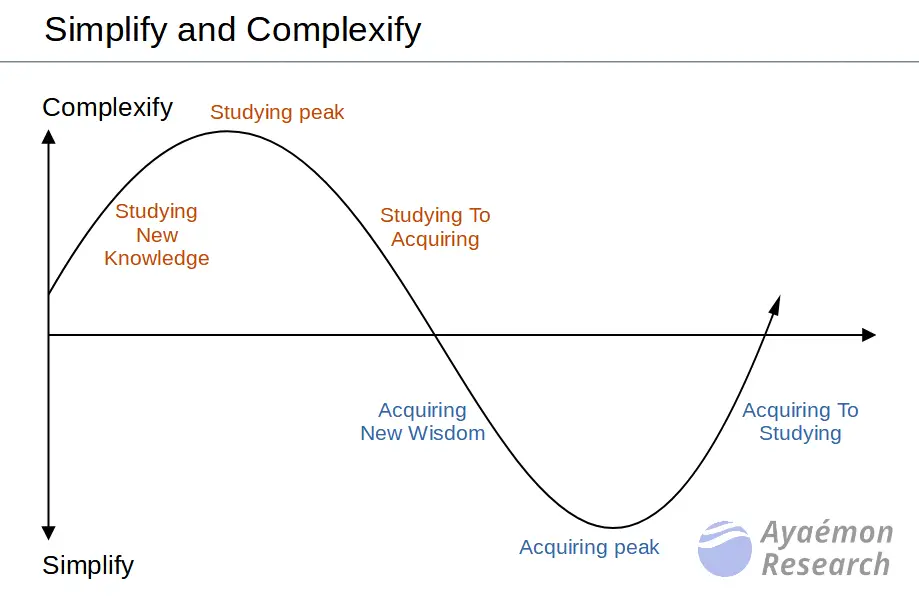Today, let’s talk about our lifestyles. I think that simplifying makes it easy, and complicating makes it fun.
Simplifying the virtual side
Recently, I’ve simplified the virtual side and valued the real side. For example, on the virtual side, I threw away my Android tablet. I removed many apps from my PC. And I reduced many information sources, such as news sites, SNSs, and webcomics. I don’t use a smartphone, so I can say that I limited my information sources significantly these months.
On the other hand, I have come to value the real side, such as food, health, exercise, and everyday life. In other words, I’ve complicated the real side.

By the way, I sometimes see information, such as “Simplicity is good, complexity is bad.” Especially in our lifestyles.
But I think that both are important for us. Because I think that simplifying makes it easy, and complication makes it fun. If we understand this, we might be able to use both and live well.
Simplify and Complicating
To explain that, let’s take a look at the relationship between simplifying and complicating. I believe that the learning process involves both simplifying and complicating. (See image below.)

- We complicate it when we study new knowledge or experience. We have fun when things become more complex.
- We simplify when we acquire wisdom from our knowledge. We can use complex things easily through simplification.
Example of learning
For example, when we learn other languages, we study them as knowledge. At such times, we complicate it. We study many unknown characters, words, phrases, grammar, and so on. So we have fun when the complexity is appropriate for our study capacities.
Then we need to put them to use as skills. In other words, we need to acquire wisdom from knowledge. At such times, we simplify it. We choose and restrict what words or phrases are appropriate for us. As a result, we can use complex things with ease.

We can also say that we can use simple things easily, but they will be easily boring. On the other hand, we find it difficult when it’s too complicated, but they will never be bored.
So, we can say that if we have difficulties, one solution is to simplify our lives. It would make our lives easy. But when we feel bored, complicating things would make our lives fun.
Using both well
As I mentioned above, I’ve simplified the virtual side and complicated the real side recently. One of the reasons is that I believe we have created overly complicated virtual environments.
Over the last 20 years, people have progressed in the internet and informational environment. That made the world more creative and convenient.
But now I feel that they have made it too complicated. There are too many complex things about IT, such as devices, applications, frameworks, new lifestyles, AIs, and so on. I feel that many people are beginning to feel the complexity.

When things get too complicated, people want to simplify. Simplifying means throwing away unnecessary things. So I limited my information sources significantly during these months.
I believe this trend will be larger around the world. In other words, I think that the IT environment got into the phase of “getting wisdom from knowledge.” In my perspective, that trend might cause the collapse of IT bubbles and economic downturns for a while.
Conclusion
So I think that simplifying makes it easy, and complicating makes it fun.
And I’ve come to value the real side, such as food, health, exercise, and everyday life. Maybe we cannot live without a virtual environment, but I feel that there is too much worthless information in the virtual environment.
Now I get simple information from the internet. That made me relax. And I’m having fun in everyday life. Maybe after I get new wisdom from simplified virtual environments, I’ll value the virtual side again.
If we understand these simplifying and complicating transitions, we might have easier, more fun lives.
Thank you for reading. See you in the next article.


